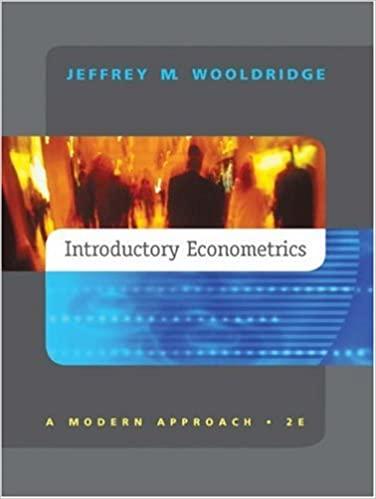Question
4) Consider a 2-period model that we studied in a class. Household receives e1 units of consumption goods at period 1 and e2 units of
4) Consider a 2-period model that we studied in a class. Household receives e1 units of
consumption goods at period 1 and e2 units of consumption goods at period 2. There are bonds
and each bond gives y unit of consumption goods at the end of period 2. Each household has 1 unit
of bonds in period 1. Bonds are traded at period 1 at the market price p in terms of consumption
goods. Household decides the quantities of consumption "c1", "c2" for each period and the quantity
of bond holding "q" to maximize his/her utility. Thus, the household's problem can be written as
max
c1,c2,q
{log(c1) + log(c2)}
Subject to
c1 + pq p + e1
c2 yq + e2
c1 0
c2 0
0
Here, "log" is natural log. Thus, log(x)=ln(x) more precisely.
4-1) Solve the above maximization problem of household and derive the demand for the asset as a
function of asset price. Describe the condition under which households have positive demand for
the asset, i.e., q>0. Also, describe the condition under which households have no demand for the
asset, i.e., q=0. (40 points)
4-2) Analyze the effects of e, e, y, p on bond's demand q when q>0 and provide intuitive
explanation for the effects of each parameter on bond's demand (20 points)
4-3) Using equilibrium market clearing condition, i.e., demand=supply, derive bond's price p. (10
points)
Step by Step Solution
There are 3 Steps involved in it
Step: 1

Get Instant Access to Expert-Tailored Solutions
See step-by-step solutions with expert insights and AI powered tools for academic success
Step: 2

Step: 3

Ace Your Homework with AI
Get the answers you need in no time with our AI-driven, step-by-step assistance
Get Started


